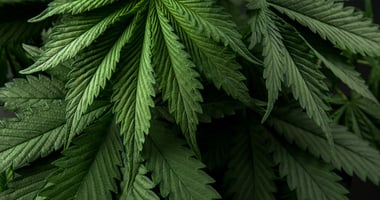Cannabidiol (CBD) may be helpful at reducing cannabis use in people with cannabis use disorder,...
Nabaximols Nasal Spray May Reduce Cannabis Use By Some Patients
 |
Study participants who received a combination of nabiximols and behavioral therapy reported using cannabis about 33% fewer days than those allocated to placebo and behavioral therapy, noted Nicholas Lintzeris, M.B.B.S., Ph.D., of Australia’s Drug and Alcohol Services and colleagues. “The reductions in illicit cannabis use and a safer route of administration … suggest the harm-reduction benefits of cannabinoid agonist treatment,” the authors wrote.
Lintzeris and colleagues enrolled 128 adults with cannabis dependence (as defined by the International Classification of Diseases, 10th Revision, or ICD-10) who were seeking treatment to participate in a 12-week trial. As part of the trial, the participants received either nabiximols or placebo nasal spray for daily use and were offered six individual cognitive-behavioral therapy sessions over the course of the trial. Each individual nabiximols spray contains 2.7 mg of THC and 2.5 mg of CBD, and participants could take up to 32 sprays daily.
At baseline, the participants reported using cannabis about 25 of the past 28 days. During the 12-week trial, adults in the placebo group reported significantly more days using cannabis (53 of 84 days) compared with those in the nabiximols group (35 of 84 days). Although there was no statistical difference between the groups in the number of participants who achieved cannabis abstinence (defined as at least 28 consecutive days without use), more adults in the nabiximols group were able to cut their cannabis use by 50% or more (54.1% vs. 28.9%).
The authors noted several limitations of the study, including the finding that only about half of the patients in the placebo and nabiximols groups stayed in treatment throughout the 12-week study. “Although our treatment retention of 46.9% at 12 weeks is comparable with prior randomized clinical trials of cannabinoid agonist treatment (55% at 11 weeks and 67% at 12 weeks), the limited treatment retention across these studies highlights the fact that cannabinoid agonist treatment is not effective for or acceptable to all patients,” Lintzeris and colleagues wrote. “Whereas nicotine-agonist and opioid-agonist treatments are considered frontline therapies, our findings suggest a more cautious approach for cannabinoid agonist treatment at this time.”
For related information, see the Psychiatric News article “Medications May Ease Cannabis Withdrawal But Fail to Achieve Abstinence” and the Psychiatric Services article “Thinking Carefully About Marijuana Legalization: Public Health Considerations for State Policy Makers.”
(Image: iStock/asadykov)






